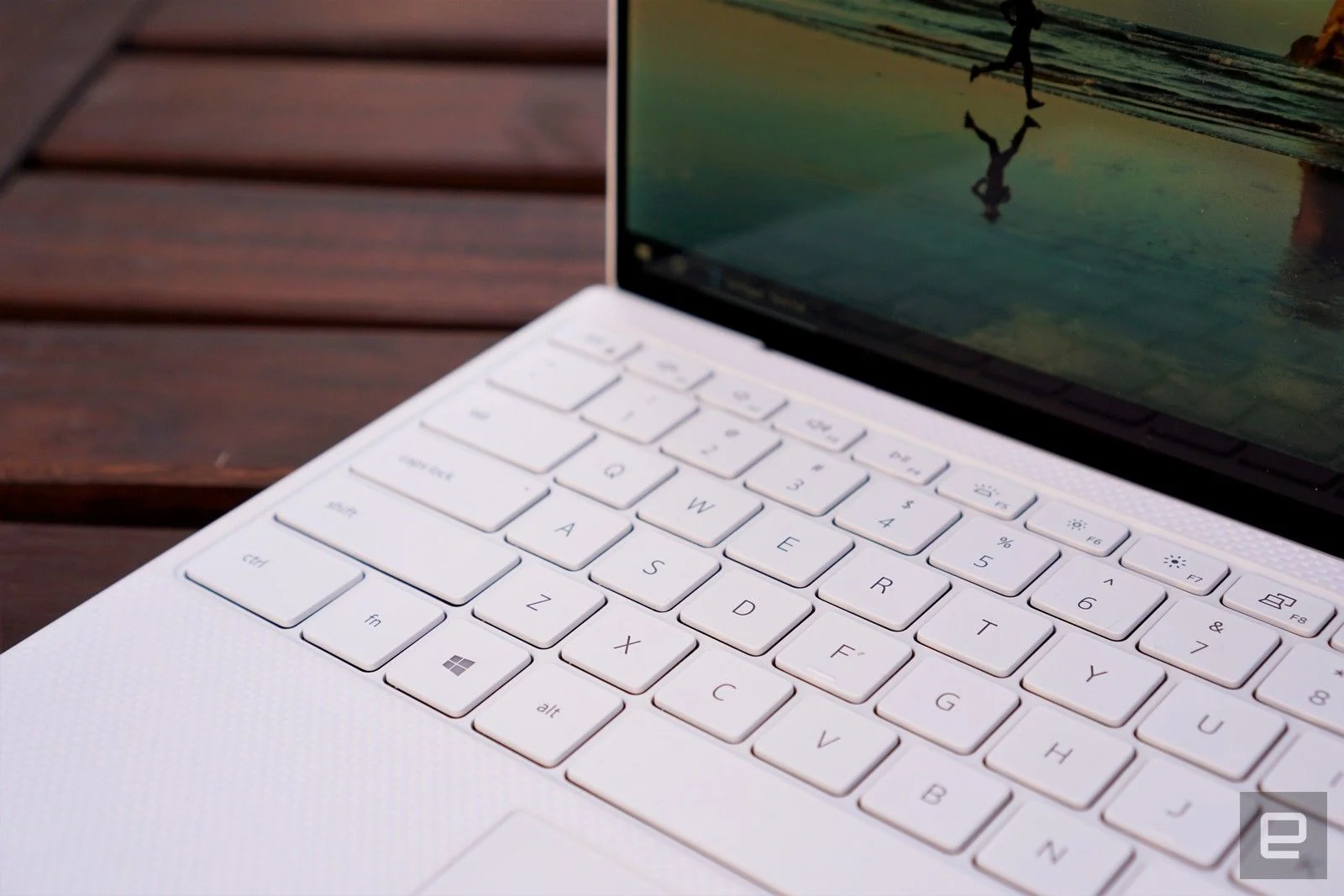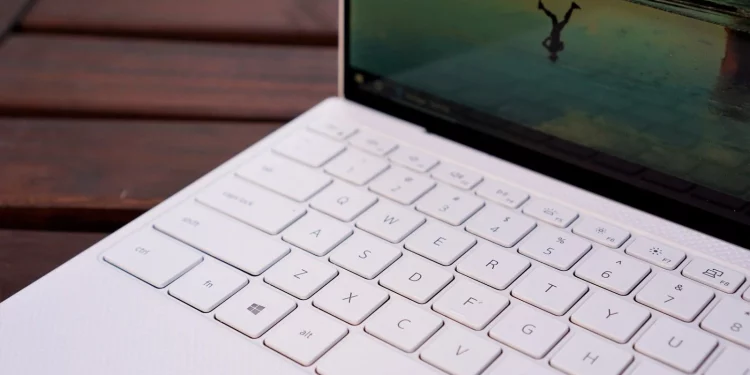All products recommended by Engadget are selected by our editorial team, independent of our parent company. Some of our stories include affiliate links. If you buy something through one of these links, we may earn an affiliate commission. All prices are correct at the time of publishing.
You may want to upgrade your tech as we begin a new year, but buying a new laptop computer can be confusing. There have never been more brands, features and configurations to consider, and given that we’re still dealing with inflation, you may also be concerned about rising prices. The good news is, companies are still making a ton of new laptops, and there are plenty of models for you to choose from the budget HP Pavilion Aero 13 to the convertible Microsoft Surface Pro 9 to our best overall pick of the Apple MacBook Air M2. We’ve made it less complicated for you to pick out the best laptop for your needs.
What to expect
You probably have an idea of your budget here, but just so you know, most modern laptops with top-of-the-line specs can cost you around $1,800 to $2,000 these days. That doesn’t mean you won’t find a good system for under $1,000 — a grand is the base price for a lot of premium ultraportables in the 13-inch category, with chips like Intel’s Core i3 or i5 series. And if that’s too expensive, you’ll still have respectable options in the $600 to $800 range, but they might come with older, slower processors and dimmer screens. I’ve included our favorite budget-friendly model in this best laptop roundup but we have a list of more-affordable laptops that you can check out as well.
After working out how much money you want to spend, the laptop’s operating system is usually the first thing you have to narrow down. As always, the decision is slightly easier for people who prefer MacBooks. Now that Apple has brought its M-series chips to its whole lineup — your only real considerations are budget, screen size and how much power you need.
Over on Team Windows, however, the shift to ARM-based chips hasn’t been as smooth. Though Apple has been able to bring huge increases in battery life while maintaining (and in some cases improving) performance with its own silicon, PC makers have been limited by Windows’ shortcomings. Microsoft released Windows 11 last year, and it’s supposed to run better on ARM-powered machines. Since the first of these laptops, like Lenovo’s ThinkPad X13s or 10w tablet, haven’t been available for review yet, we can’t tell how well the system runs. Of course, you can upgrade to Windows 11 on existing ARM-based PCs, but for now, it’s still safer to stick with an Intel or AMD processor.

Let’s not forget there’s a third and fairly popular laptop operating system: Chrome. If you do most of your work in a browser (lots of online research, emails and Google Drive), then a Chromebook might be a suitable, and often more affordable option.
As for other things to look out for, it’s worth pointing out that a couple of laptops coming out this year are doing away with headphone jacks. Though this doesn’t seem to be a prevalent trend yet, it’s a good reminder to check that a machine has all the connectors you need. Most laptops in 2022 offer WiFi 6 or 6E and Bluetooth 5.0 or later, which should mean faster and more stable connections if you have compatible routers and devices. While 5G coverage is more widespread this year, whether you need support for that depends on how much you travel.
Where you plan on taking your laptop also helps in deciding what size to get. Many companies launched new 14-inch machines in the last year, straddling the line between ultraportable and bulkier 15-inch offerings. For most people, a 14-inch screen is a great middle ground. But if you’re worried about weight, a 12- or 13-inch model will be better. Those that want more powerful processors and larger displays will prefer 15- or 16-inch versions.
Best overall: MacBook Air M2
As a Windows user, I find myself reluctant to name an Apple MacBook the best overall laptop. But I can’t deny that Apple’s transition to its own Silicon has made its machines better. The latest MacBook Air M2 is a worthy sequel to the M1 that came out in 2020, bringing a fresh design and a performance boost that all users will appreciate.
That’s not to say the M1 was a sluggish machine — quite the contrary. We found it to be impressively fast, and the M2 only builds on top of that stellar performance. It’s probably overkill for a MacBook Air, but that means it will serve most people well for both work and play. Plus, its impressive 16.5-hour battery life should be enough for anyone to get a day’s worth of work and then some.
As for its design, we like that Apple took a more uniformly thin approach here and retired the wedge shape of the previous model. The M2 Air also has a lovely 13.6-inch Liquid Retina display, interrupted only by the top notch which holds its 1080p webcam. Its quad-speaker setup is an improvement as well, and all of these small hardware changes add up to a machine that looks and feels more different than you may expect from its predecessor. However, both the Apple M1 and M2 MacBook Air laptops remain solid machines. Considering the M2 starts at $1,199, those with tight budgets may be willing to forgo the new design improvements in order to save some cash and get a still-speedy laptop.
Best Windows: Dell XPS 13 Plus
The best PC has long been Dell’s well-rounded XPS 13 series and I still recommend it to anyone that doesn’t want a Mac. Yes, the new XPS 13 Plus lacks a headphone jack, and we haven’t got one in to test yet. But the XPS 13 is a well-rounded Windows laptop and still one of the best-looking PCs out there.
Like its predecessors, the Dell XPS 13 Plus offers a lovely OLED screen with impressively thin bezels and packs a roomy, comfortable keyboard. It also features a new minimalist design that looks more modern. I’m not sure about the row of capacitive keys at the top in lieu of traditional function keys, but I’m confident that the laptop’s 12th-gen Intel Core processors will provide a healthy performance boost from the last model.
If you’re not sure about the changes Dell has made to the XPS 13, or if you definitely need a headphone jack, the older generations are still solid options. There’s also the Samsung Galaxy Book 2 Pro series, which feature beautiful OLED screens and sharper webcams in thin and light frames. I also like Microsoft’s Surface Laptops, and the most recent edition offers great performance and battery life, albeit in an outdated design.
Best for gaming: Razer Blade 15 Advanced
Gamers should look for machines with responsive screens and ample ports for their favorite accessories that can best help them defeat their virtual enemies. My colleague Devindra Hardawar goes into more detail about what to consider in his guide to buying a gaming laptop, which you should read to learn about different CPUs and GPUs, minimum specs and more. Our pick for the best gaming laptop is the Razer Blade 15 Advanced, which has an Intel Core i7 processor, and an NVIDIA RTX 3070 graphics for $2,500.
It’s the most expensive item on this list, but you also get a 15-inch quad HD screen that refreshes at 240Hz. Different configurations are available, depending on your preference, including a Full HD 360Hz and a 4K 144Hz version. The Blade series is also one of the most polished gaming laptops around.
Those looking for a budget gaming laptop should consider the ASUS ROG Zephyrus G14, which was our favorite model last year. The main reason it got bumped down a notch is because the 2022 refresh is almost $600 more expensive. It’s still a solid gaming laptop though, with an excellent display, roomy trackpad and plenty of ports in spite of its thin profile.
Best Chromebook: Lenovo IdeaPad Flex 5i Chromebook
Our favorite Chromebook is Lenovo’s Flex 5 Chromebook, which Engadget’s resident Chrome OS aficionado Nathan Ingraham described as “a tremendous value.” This laptop nails the basics, with a 13-inch Full HD touchscreen, a fantastic keyboard and a 10th-generation Intel Core i3 processor. The 4GB of RAM and 64GB of storage may sound meager, but in our testing the Flex 5 held up in spite of this constraint. It’s also nice to see one USB-A and two USB-C ports, eight hours of battery life and a 360-degree hinge that makes it easy to use the Flex 5 as a tablet. That’s a bonus, especially now that Chrome OS supports Android apps.
Though the Flex 5 is almost two years old by now, it’s a solid deal at around $400. In fact, you can sometimes find it on sale for as little as $300, making it a great option for someone looking for a basic browser-based machine on a tight budget.
Best budget: HP Pavilion Aero 13
If you’re looking for a cheap laptop priced around $800, your best bet is the HP Pavilion Aero 13. For around $799 (or often less when on sale), you’ll get a Full HD screen with a 16:10 aspect ratio and surprisingly thin bezels, as well as a comfortable keyboard and spacious trackpad. Importantly, the Aero 13 provides relatively powerful components compared to others in this price range, with an AMD Ryzen 5000 series processor and Radeon graphics. Plus, it has a generous array of ports and enough battery life to last you the entire work day and then some.
Best convertible: Microsoft Surface Pro 9
For those who need their laptops to occasionally double as tablets, the Surface Pro series is a good option. Compared to notebooks with rotating hinges, tablets with kickstands are often much slimmer and lighter. The Surface Pro 9 is Microsoft’s latest 2-in-1 laptop model and if you’ve had your eye on a Surface for a while, just know to get the Intel version of this machine rather than the ARM model. In our testing, we found that the 5G ARM version of the Pro 9 was much slower than a flagship convertible should be and that’s mostly due to the fact that lots of the Windows apps readily available on Intel’s x86 hardware have to be emulated to work on Microsoft’s custom ARM SoC. Considering you’ll pay at least $1,000 for any Surface Pro 9 model, you might as well get a configuration that has as few limitations as possible.
While we have our gripes about the Pro 9’s overall ergonomics, it’s undoubtedly one of the thinnest and lightest laptop alternatives you can get. It’s attractive and has a gorgeous 13-inch display, and we still consider Microsoft’s Type Cover to be one of the best you can get, period. They will cost you extra, though, so be prepared to shell out another $100 to $180 for one. Microsoft’s Slim Pen 2 is another highlight, and it will be a must-buy accessory for anyone that loves to draw or prefers to take handwritten notes. Overall, if you want a machine that can switch seamlessly from being a laptop to being a tablet, the Intel Surface Pro 9 is one of your best bets. Of course, if you’re married to the Apple ecosystem, you should consider an iPad Pro.
Published at Tue, 24 Jan 2023 15:15:32 +0000

